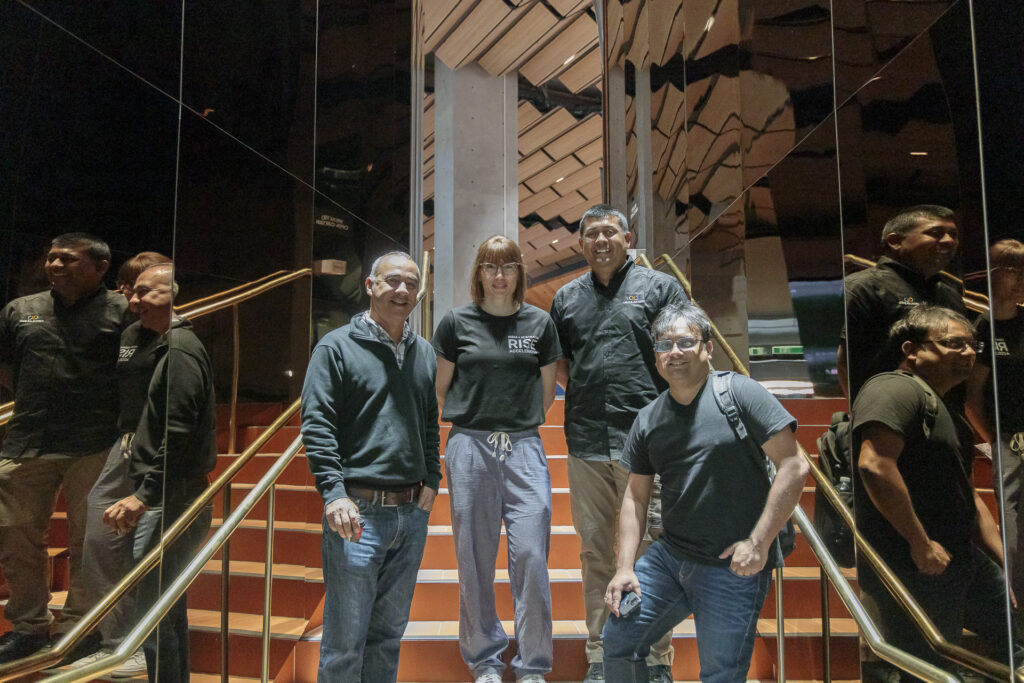India & Australia Launch Joint Accelerator Programme for Climate-Smart Agritech Startups
4 Mins Read
Public agencies from India and Australia have opened applications for the Climate Smart Agritech cohort of their joint RISE accelerator programme, offering up to $50,000 for eligible startups.
The governments of India and Australia have opened up an accelerator programme for climate-smart agriculture startups that are developing innovative technologies to optimise resource use, boost productivity, and lower on-farm emissions.
India’s flagship entrepreneurship initiative Atal Innovation Mission (AIM) and Australia’s science agency CSIRO are inviting applications to the second round of the India Australia Rapid Innovation and Start-up Expansion (RISE) Accelerator, which begins in October.
The programme was first launched by the two countries in 2023, with the first round focusing on the circular economy. It helps startups validate, adapt and pilot their technologies for new markets, and with the latest Climate Smart Agritech cohort, it is now focusing on agritech businesses with solutions that enhance agricultural resilience amid “growing climate variability, resource scarcity and food insecurity”. Selected startups may also be eligible for non-equity funding up to A$75,000 ($50,000).
It comes a week after India introduced 109 high-yielding, climate-resilient varieties of crops for farmer, a part of the finance ministry’s 2024-25 budget.
Why India and Australia need agricultural transformations

Agriculture is responsible for 15% and 13% of India’s and Australia’s total emissions, respectively. But the similarities don’t end here – both nations have been hard by the climate crisis.
In India, agriculture is the sector most vulnerable to climate change, with the country losing nearly 70 million hectares of crops due to excessive rainfall or drought between 2015 and 2021. Farms in Australia, meanwhile, have seen annual profits shrink by 23% on average due to changes in seasonal conditions between 2001 and 2020.
According to the G20 Climate Transparency project, livestock accounts for 66% of both India’s and Australia’s emissions. And if temperature rises cross 1.5°C, the countries will see maize yields decrease by 2.8% and 2.7%, respectively.
“India and Australia share common agricultural challenges, but the scale and diversity of our farming operations are unique,” said CSIRO programme director Tamara Ogilvie. “This cohort will enable participants to achieve product-market fit in diverse markets, and rapidly scale their solutions to meet global demands.”
As part of the nine-month scheme, CSIRO and AIM are looking for novel agricultural solutions that can support farmer livelihoods, national economies, and food security. Ogilvie suggested that startups will be competitively selected based on how scalable, deployable, and innovative their solutions are.
To apply, startups must be younger than 10 years, be incorporated in either India or Australia, and have a technology that meets four challenge statements. The first asks companies to consider whether their solution involves optimising water use, driving optimal soil nutrition and health, and/or protecting or restoring critical natural resources. The second question involves promoting agricultural yield, resilience, and productivity through the efficient use of fertilisers, pesticides, seeds or feed.
The third challenge revolves around reducing on-farm energy use and emissions, and the final one is focused on breakthrough innovations that move beyond legacy technologies to cater to the changing climate, population and economic circumstances.
RISE Accelerator to connect startups with potential customers

Rose Roche – lead of CSIRO’s Ag2050 programme, which aims to build a resilient agriculture industry by mid-century – stated that continuous innovation is crucial to ensure profitable, producing and sustainable farming systems.
“To support national economies and farmer livelihoods, we need to develop and scale innovative solutions in land use and food security that are suited to our changing climate and growing global population,” she said.
In the nine-month accelerator programme, startups will have access to both self-paced online and in-person learning sessions, and get to participate in Immersion Weeks – which involve a week of intensive learning, site visits and networking each in Australia and India.
These sessions are said to offer deep market insights, one-on-one coaching, and mentorship from industry experts. The programme will further involve field trials and technology platforms, with the ultimate goal of connecting startups with potential partners and customers.
“Through the programme, participants will have the opportunity to rapidly integrate into overseas innovation ecosystems they might otherwise not have access to, helping them achieve product-market fit for their technologies,” said Ogilvie.
“By fostering innovation and providing a platform for startups to scale their solutions, the RISE Accelerator program not only addresses the immediate challenges in the agriculture sector, but also ensures that farmers can access and adopt resilient practices tailored to their specific needs,” added AIM programme lead Pramit Dash.
India and Australia are both part of the G20, but research has found their climate commitments to be insufficient. Climate change and sustainable development are key agendas of the G20 summit in Brazil this November.
And as part of the conference’s agriculture focus, leaders will highlight solutions to address key issues like food security, sustainable agriculture, technological innovation, and climate change adaptation – all tenets of the RISE Accelerator.



